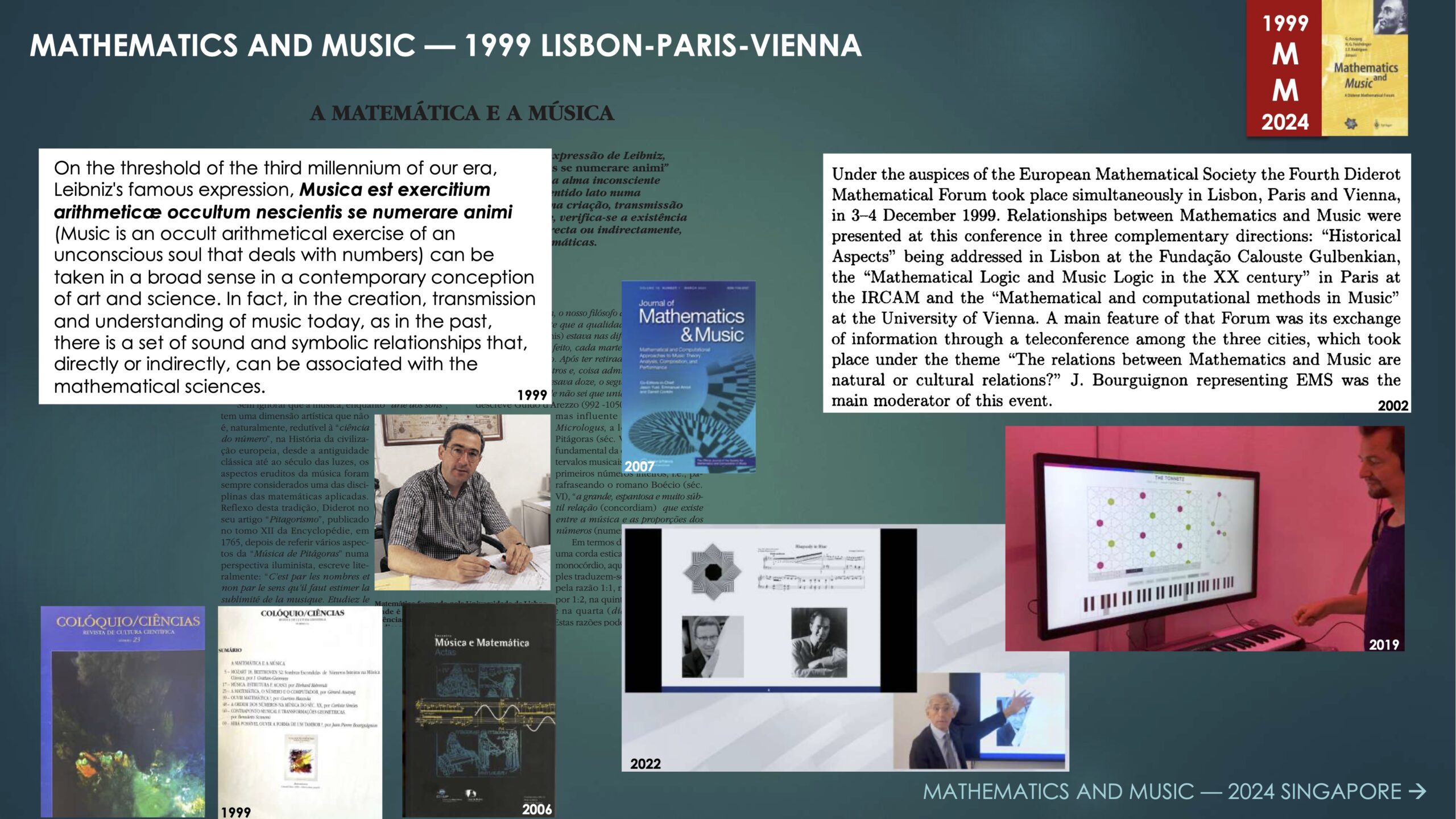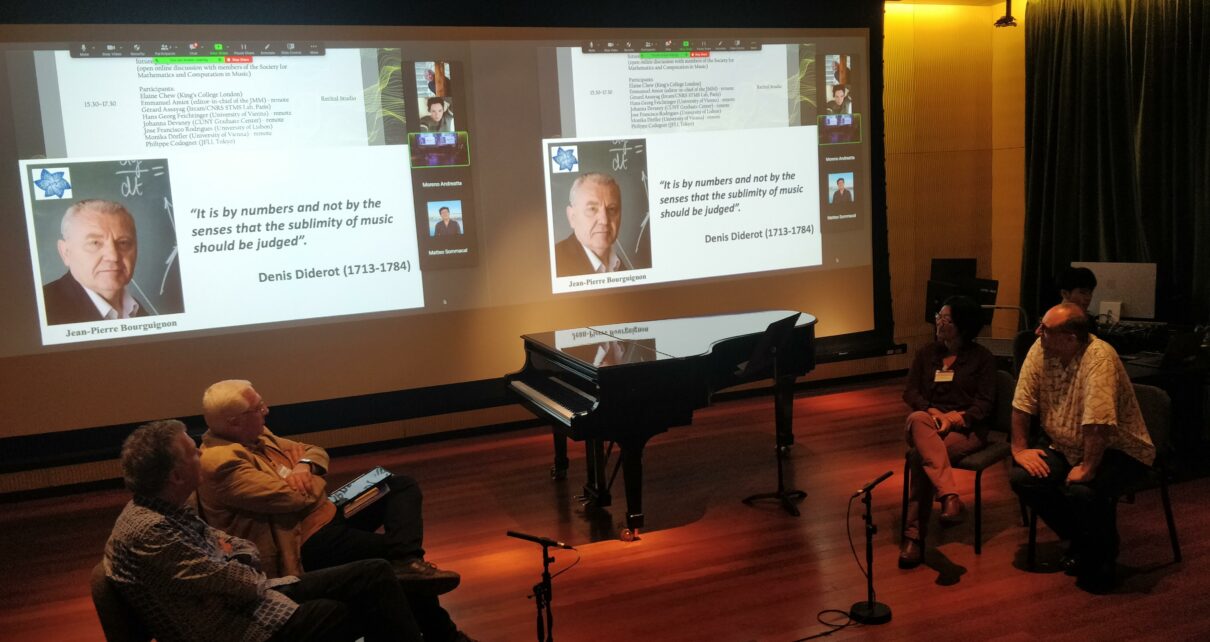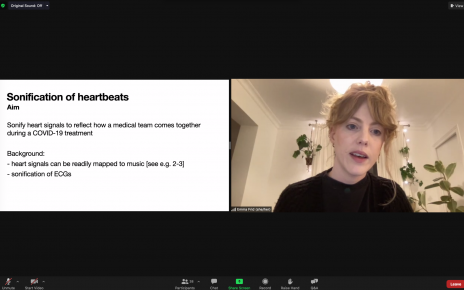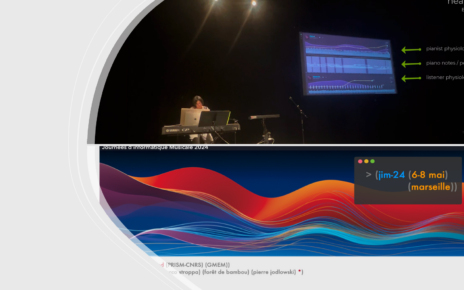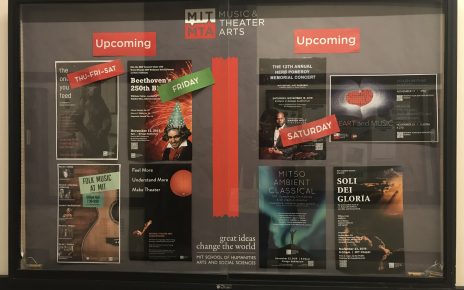The roundtable at the Mathemusical Encounters in Singapore on the Diderot Forum Legacy took place on Thursday, 22 February 2024, from 15h30 to 17h30. As described on the Institute for Mathematical Sciences website:
“Under the auspices of the European Mathematical Society the Fourth Diderot Mathematical Forum, dedicated to “Mathematics and Music”, took place simultaneously in Lisbon, Paris and Vienna, on 3-4 December 1999. Since this seminal event, an international Society for Mathematics and Computation in Music and a peer-review Journal of Mathematics and Music has emerged, contributing to the progressive recognition of Mathematics and Music as a discipline in its own right. In 2015, another important milestone was achieved in the form of the international workshop Mathemusical Conversations: mathematics and computation in performance and composition co-hosted by the Institute for Mathematical Sciences and the Yong Siew Toh Conservatory of Music in Singapore. Mathemusical Encounters in Singapore : a Diderot Legacy marks the 25th anniversary of the original Mathematics and Music Diderot forum. It is an occasion to recognise the continued growth of mathematics and music and its foundational role in broader mathemusical applications ranging from music technologies to performance creativity to digital therapeutics, and to lay the groundwork for future directions in the interdisciplinary research field of Mathematics and Music.”
Elaine Chew, founding member of SMCM and former secretary of the society, is a panelist together with the original Diderot Forum organisers Gérard Assayag, Jose Francisco Rodrigues, and Hans Georg Feichtinger, present JMM editor-in-chief Emmanuel Amiot, former SCMC secretary Johanna Devaney, and Philippe Codognet and Monika Dörfler. The panel was moderated by Moreno Andreatta.
Participants:
Elaine Chew (King’s College London)
Emmanuel Amiot (editor-in-chief of the JMM) – remote
Gérard Assayag (Ircam/CNRS STMS Lab, Paris)
Hans Georg Feichtinger (University of Vienna) – remote
Jean-Pierre Bourguignon (IHES) – remote
Johanna Devaney (CUNY Graduate Center) – remote
Jose Francisco Rodrigues (University of Lisbon)
Monika Dörfler (University of Vienna) – remote
Philippe Codognet (JFLI, Tokyo)
The organisers of the 1999 event Gérard Assayag from Ircam and José-Francisco Rodrigues from Lisbon recall the main foci selected at each site. Elaine Chew, Emmanuel Amiot and Johanna Devaney summarise their role in the founding of the Society and of the Journal. Philippe Codognet shares perspectives on the place of computer science in mathemusical research.
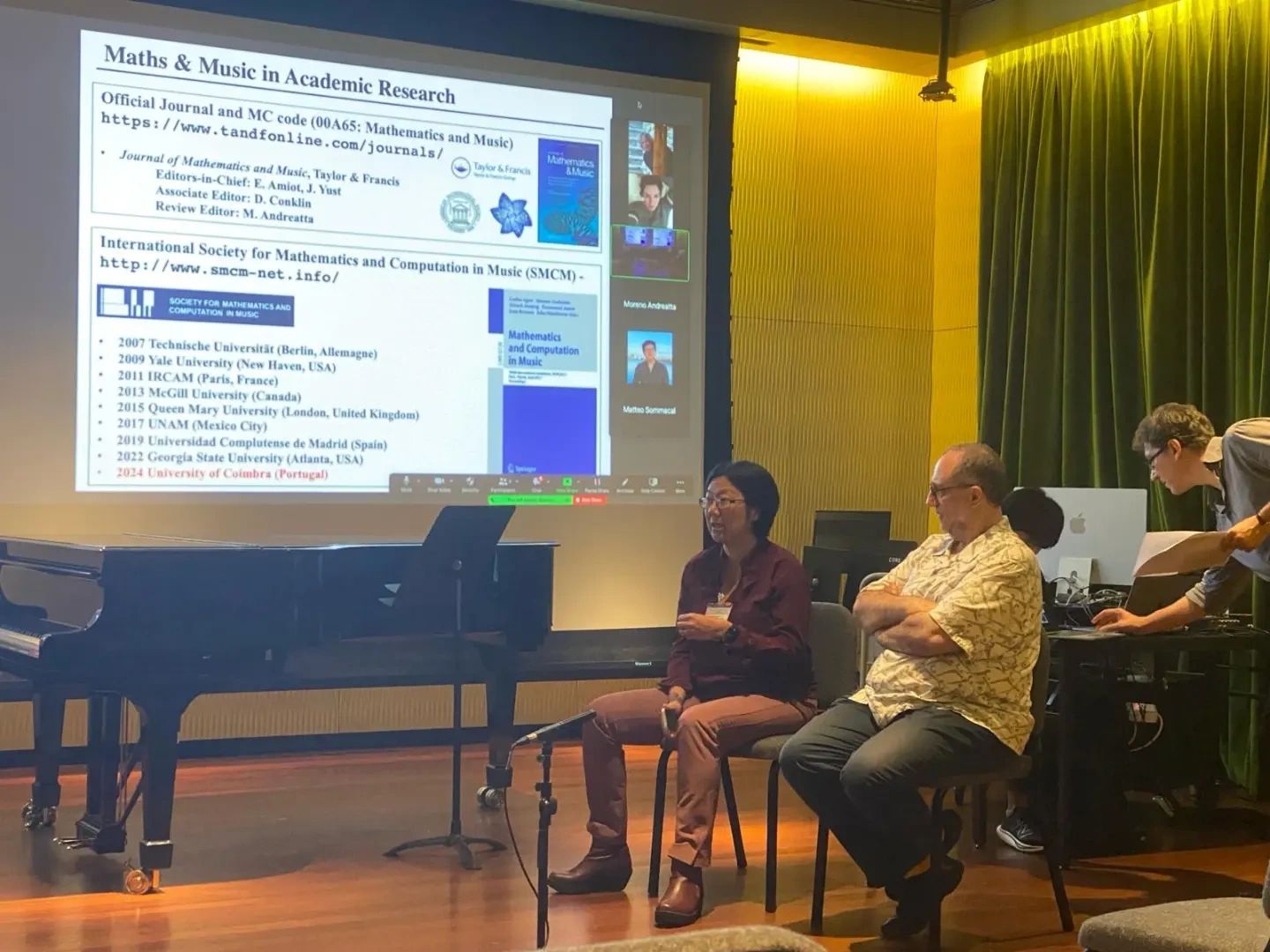
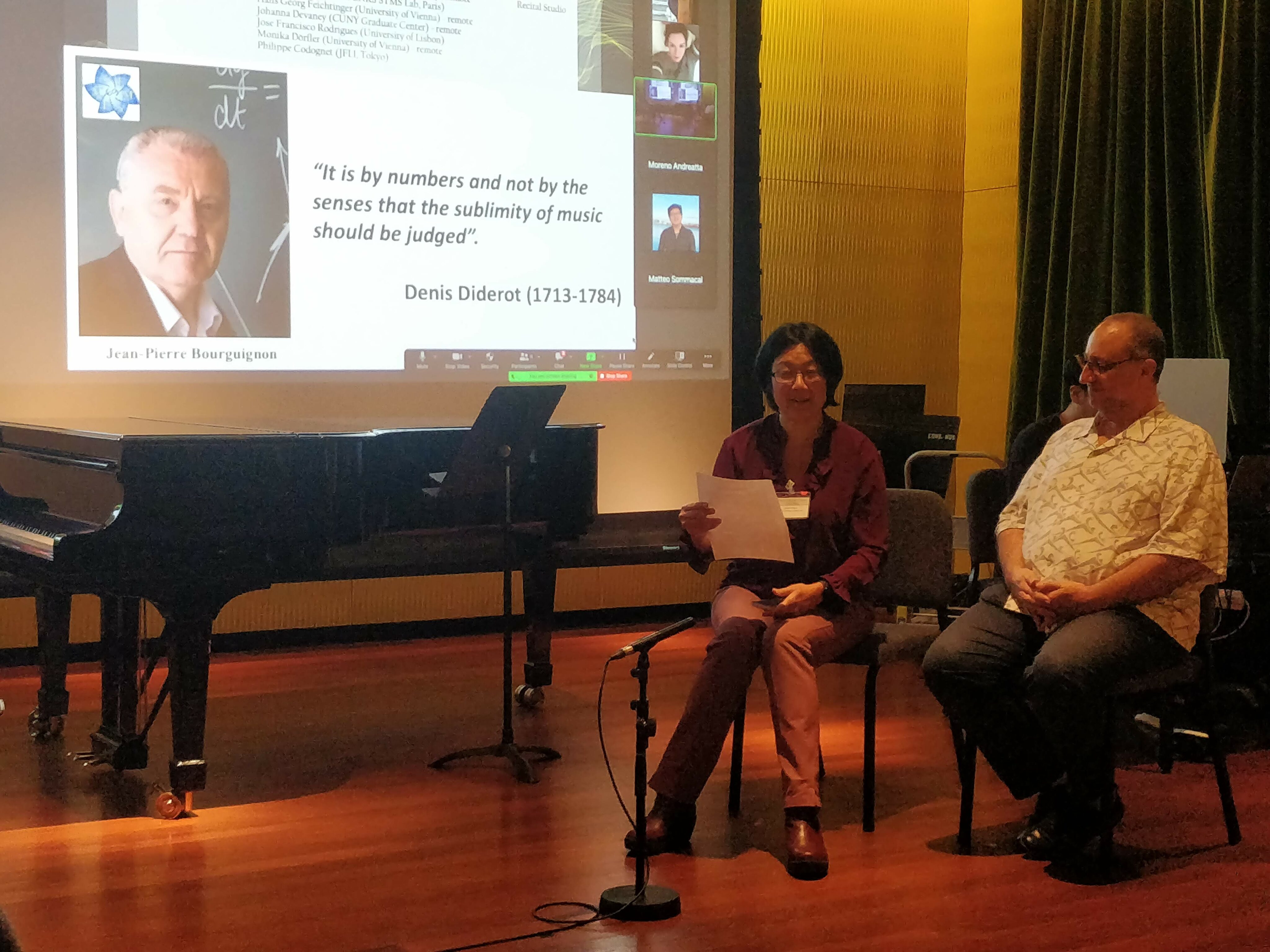
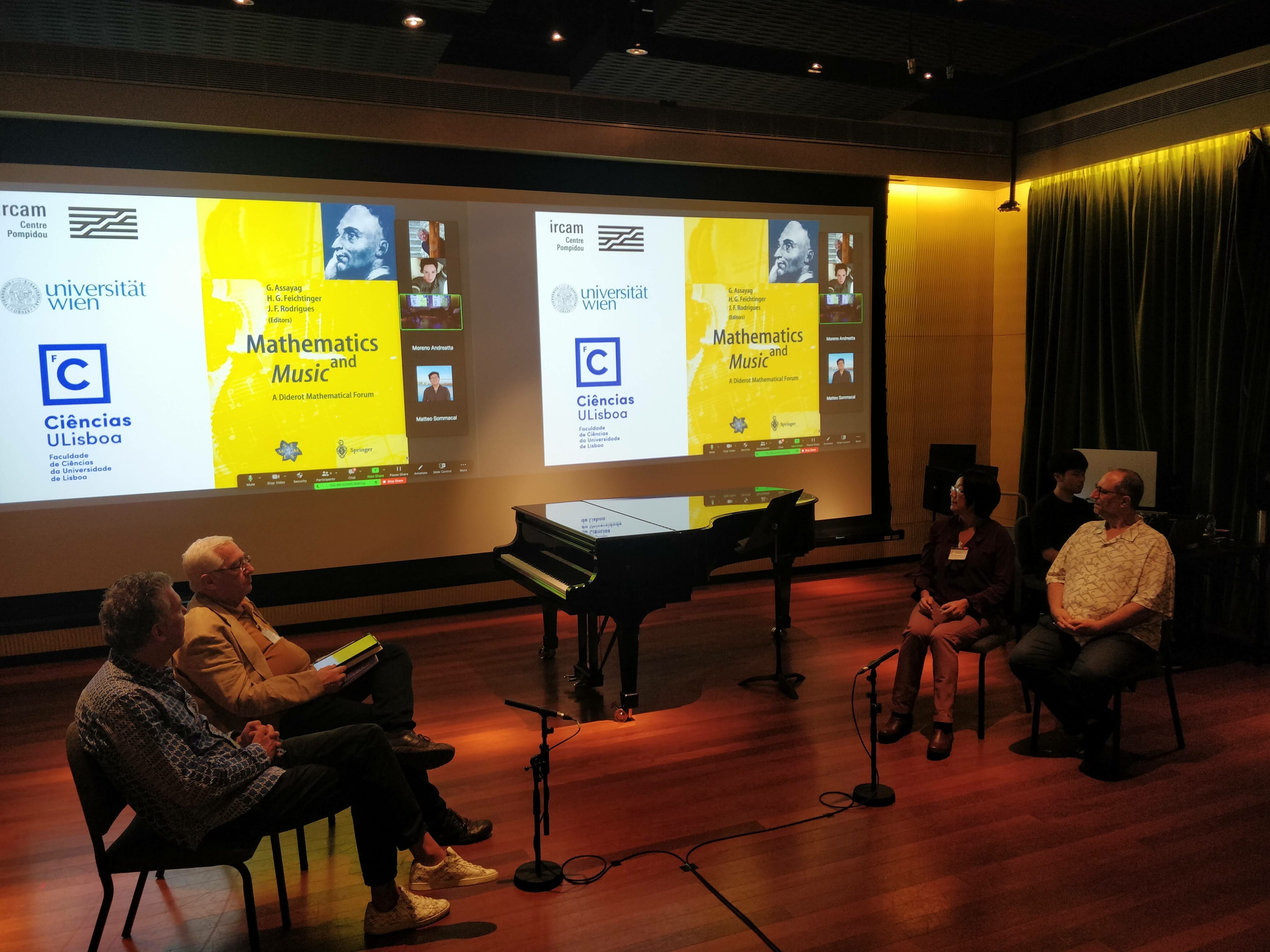
Jean-Pierre Bourguignon, Nicolaas Kuiper Honorary Professor at IHES and former President of the European Mathematical Society at the time of the Diderot Forum, sends some opening words:
A contribution from Jean-Pierre BOURGUIGNON,
Nicolaas Kuiper Honorary Professor at IHES
Dear colleagues and friends,
First, let me apologise for not being able to take part virtually in this round table in Singapore at the
wonderful meeting: “Mathemusical Encounters in Singapore : a Diderot Legacy”. I still have a very
fond memory of my participation in a previous Mathematics and Music conference there, which
was highly enjoyable and of an impressive quality. I am confident it is the same this time.
I was asked to recall briefly how the Diderot Mathematical Forum on Mathematics and Music came
about. The European Mathematical Society (EMS) was still in its infancy – it was created in 1990 in
Madralin in Poland. While I was the second EMS President, we looked for new initiatives we could
take with a typical European flavour. We decided to go for a series of special events bringing
together interested colleagues from different countries, hence the name Forum. There was another
diversity we were eager to have, namely to reach out to disciplines or cultures other than
Mathematics. The image of Denis DiDEROT for the series looked appropriate to us because of his
major involvement in L’Encyclopédie, a truly amazing adventure attempting to present the
extraordinary diversity of knowledge available in the mid-18th century. It became for good reasons
some kind of coronation of the movement of The Enligthening. Was this a time we could dream of?
The format of Diderot Mathematical Fora was purposely light: every event took place
simultaneously in three cities in Europe with video-transmissions and, on each site, typically some
30 to 50 people would get together. It was therefore rather easy and financially cheap to organise
such a Forum. Still, to put everything in place required a lot of work to be done. Remember indeed:
then, such a technical setting with distance participation was not as obvious as it has become now.
The first Forum took place in 1996 in London, Moscow and Zurich on the theme of Mathematics
and Finance, a rather hot topic at the time. The Mathematics and Music Diderot Forum was the
fourth in the series. It took place 3-4 December 1999, so that you are indeed celebrating, actually a
bit early, its 25th anniversary. People in charge were Gérard ASSAYAG at IRCAM in Paris, Hans G.
FEICHTINGER at the University of Vienna and José Francisco RODRIGUES at the Fundaçao Calouste
Gulbenkian in Lisbon. Within the overall theme, each leg had a different focus: “Mathematical and
music Logic in the 20th century” in Paris, “Mathematical and computational methods in Music” in
Vienna and “Historical aspects” in Lisbon. At each place, interesting contributors were found.
Actually, on the topic of this forum, the figure of Denis DIDEROT was especially appropriate. He was
indeed very interested in aesthetics and, concerning the relation between Mathematics and Music,
he took up the Pythagorean tradition as a translation of one of his quotes shows: “It is by numbers
and not by the senses that the sublimity of music should be judged”.
The organisers did much more than just setting up the Forum since, in 2002 under their editorship,
Springer Verlag published the impressive monograph Mathematics and Music, A Diderot
Mathematical Forum, gathering the proceedings of the lectures. It also contained further very
significant contributions on the topic of Mathematics and Music, from several points of view.
One of the follow ups of the Forum was the formal setting up of a team centred on the relations
between Mathematics and Music at IRCAM which attracted several researchers, some present.
As past President of the European Research Council, I cannot close this brief contribution without
explicitly greeting and congratulating two of the organisers of the present meeting who are also ERC
grantees: Elaine CHEW, who I had the pleasure to meet and appreciate her performance at the
Falling Walls event in Berlin last November, and Gérard ASSAYAG.
I thank you for your attention.
